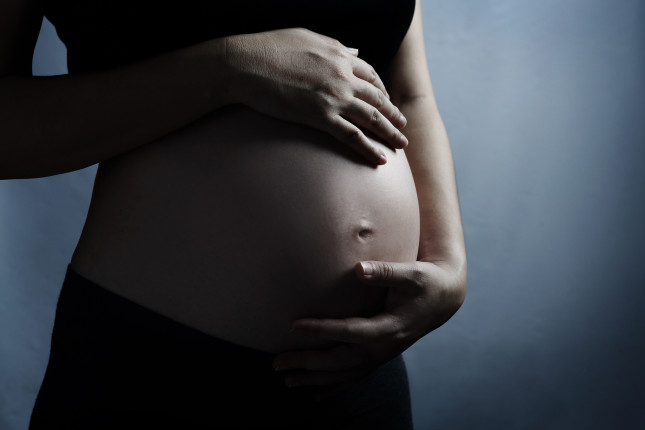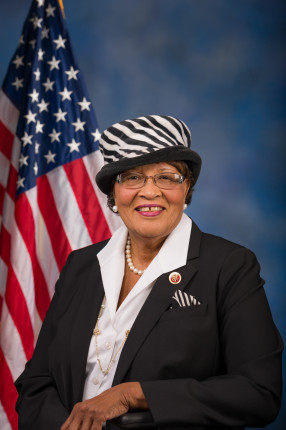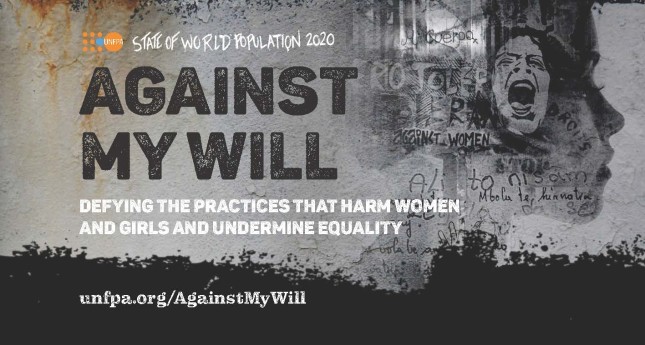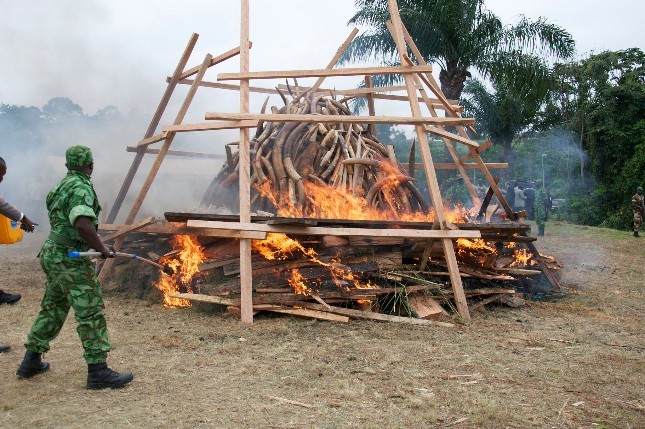-
The State of Sexual and Reproductive Health and Rights: A Conversation with Dr. Zara Ahmed
› “Unintended pregnancy and abortion are reproductive health experiences shared by tens of millions of people around the world, irrespective of personal status or circumstance. What differs though are the obstacles,” said Dr. Zara Ahmed, Associate Director of Federal Issues at the Guttmacher Institute in this week’s Friday Podcast. Research from the Guttmacher Institute on sexual and reproductive health (SRH) found that in 2018, there were 121 million unintended pregnancies globally, and of those, 61 percent ended in abortion. About half of these abortions were in unsafe conditions and led to approximately 23,000 preventable pregnancy related deaths, said Ahmed.
“Unintended pregnancy and abortion are reproductive health experiences shared by tens of millions of people around the world, irrespective of personal status or circumstance. What differs though are the obstacles,” said Dr. Zara Ahmed, Associate Director of Federal Issues at the Guttmacher Institute in this week’s Friday Podcast. Research from the Guttmacher Institute on sexual and reproductive health (SRH) found that in 2018, there were 121 million unintended pregnancies globally, and of those, 61 percent ended in abortion. About half of these abortions were in unsafe conditions and led to approximately 23,000 preventable pregnancy related deaths, said Ahmed. -
The Global Impact of COVID-19 on Women and Girls
›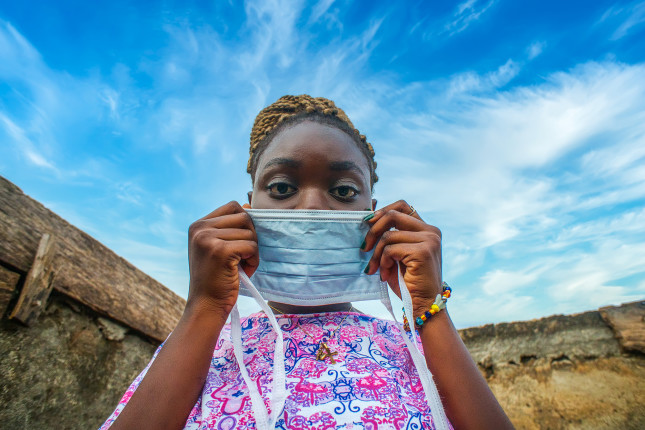
“As we face a global pandemic that has taken the lives of more than 800,000 people as of right now around the world, we certainly have to recognize the particular impacts that that has had on women and girls and their lives,” said Rep. Chrissy Houlahan (D-PA), at a recent event hosted by CARE and UNFPA about the global impact of COVID-19 on women and girls. While women make up 70-80 percent of frontline healthcare workers globally, they have also been disproportionately affected during the pandemic by increased rates of gender-based violence, lack of access to sexual and reproductive healthcare, and economic and food insecurity.
-
A National Reckoning: Highlights From A Conversation with Congresswoman Alma Adams
› “I believe that we’re experiencing a national reckoning and in this unique moment, I definitely see an opportunity for Congress, but also for our local governments to enact policies that begin to address our country’s greatest ills,” said Representative Alma Adams (D-NC-12) at a recent Wilson Center event on women, race, and COVID-19 in the United States. “COVID-19 has revealed what the Black community and communities of color have known for a long time—health outcomes are further compounded by systemic and structural racism. COVID-19 has exposed what women have known for a long time—gender inequality exists, it threatens economic empowerment, and it increases vulnerabilities.”
“I believe that we’re experiencing a national reckoning and in this unique moment, I definitely see an opportunity for Congress, but also for our local governments to enact policies that begin to address our country’s greatest ills,” said Representative Alma Adams (D-NC-12) at a recent Wilson Center event on women, race, and COVID-19 in the United States. “COVID-19 has revealed what the Black community and communities of color have known for a long time—health outcomes are further compounded by systemic and structural racism. COVID-19 has exposed what women have known for a long time—gender inequality exists, it threatens economic empowerment, and it increases vulnerabilities.” -
Structural Racism and its Impact on Black Maternal Health
›
“The past months have been profoundly difficult for our nation, and for Black communities in particular,” said Representative Lauren Underwood (D-IL-14) at a recent March of Dimes event on the impact of structural racism on maternal health. COVID-19 has highlighted health outcome inequity caused by race and racism. Though Black people constitute 13 percent of the U.S. population, the CDC estimates they represent over 30 percent of COVID-19 cases.
-
Women, Race, and COVID-19: A Conversation with Representative Alma Adams
›
“The pandemic has shown us in the starkest terms how wide the gaps are in health outcomes between Black and White America and between men and women,” said Representative Alma Adams (D-NC-12) at a recent Wilson Center event on women, race, and COVID-19 in the United States. “COVID-19 has revealed what the Black community and communities of color have known for a long time, health outcomes are further compounded by systemic and structural racism,” said Rep. Alma Adams. And COVID-19 has exposed what women have known for a long time. Gender inequality exists, it threatens economic empowerment, and it increases vulnerabilities.
-
Against My Will: Harmful Practices Threaten Gender Equality Worldwide
›
“Our world is grappling with the COVID-19 pandemic and also coming to terms with systematic racism and oppression that black communities and communities of color continue to experience in the United States and in other parts of the world,” said Sarah Craven, Director of the Washington, D.C. office at the United Nations Population Fund (UNFPA) at a recent webinar launching UNFPA’s 2020 State of the World’s Population Report. This year’s report, titled Against My Will, covers three widespread practices that violate human rights, but are still accepted in many cultures—son preference, child marriage, and female genital mutilation/cutting (FGM/C).
-
Bipartisan Lawmakers Fight Illegal Wildlife Trafficking, Promote Smart Development for Conservation
›
“In the last decade, almost half of Africa’s elephants have been killed for their ivory, and some experts are predicting that both elephants and rhinoceros will be extinct by 2030,” said Nancy Lindborg, President of the U.S. Institute of Peace at a recent event on wildlife poaching and trafficking. The illegal trade in protected wildlife is worth US$7-10 billion—some of which has ended up in the pockets of armed groups like Al-Shabaab and the Lord’s Resistance Army, said Lindborg.
-
Coastal Resilience on Capitol Hill: Protecting the United States’ Infrastructure, Economy, and Security
›
Every dollar invested in preparing for natural disasters could save seven dollars, said Alice Hill, Research Fellow at the Hoover Institution, at a recent briefing on Capitol Hill. Catastrophic events like Superstorm Sandy present significant financial risks to U.S. businesses, the federal treasury, and the global economy. These complex emergencies have taught us that “everything is connected: our transportation system failed, our health sector failed,” said Hill, in the wake of these storms.
Showing posts from category Congress.


 “Unintended pregnancy and abortion are reproductive health experiences shared by tens of millions of people around the world, irrespective of personal status or circumstance. What differs though are the obstacles,” said Dr. Zara Ahmed, Associate Director of Federal Issues at the
“Unintended pregnancy and abortion are reproductive health experiences shared by tens of millions of people around the world, irrespective of personal status or circumstance. What differs though are the obstacles,” said Dr. Zara Ahmed, Associate Director of Federal Issues at the  “I believe that we’re experiencing a national reckoning and in this unique moment, I definitely see an opportunity for Congress, but also for our local governments to enact policies that begin to address our country’s greatest ills,” said Representative Alma Adams (D-NC-12) at a recent Wilson Center event on women, race, and COVID-19 in the United States. “COVID-19 has revealed what the Black community and communities of color have known for a long time—health outcomes are further compounded by systemic and structural racism. COVID-19 has exposed what women have known for a long time—gender inequality exists, it threatens economic empowerment, and it increases vulnerabilities.”
“I believe that we’re experiencing a national reckoning and in this unique moment, I definitely see an opportunity for Congress, but also for our local governments to enact policies that begin to address our country’s greatest ills,” said Representative Alma Adams (D-NC-12) at a recent Wilson Center event on women, race, and COVID-19 in the United States. “COVID-19 has revealed what the Black community and communities of color have known for a long time—health outcomes are further compounded by systemic and structural racism. COVID-19 has exposed what women have known for a long time—gender inequality exists, it threatens economic empowerment, and it increases vulnerabilities.” 